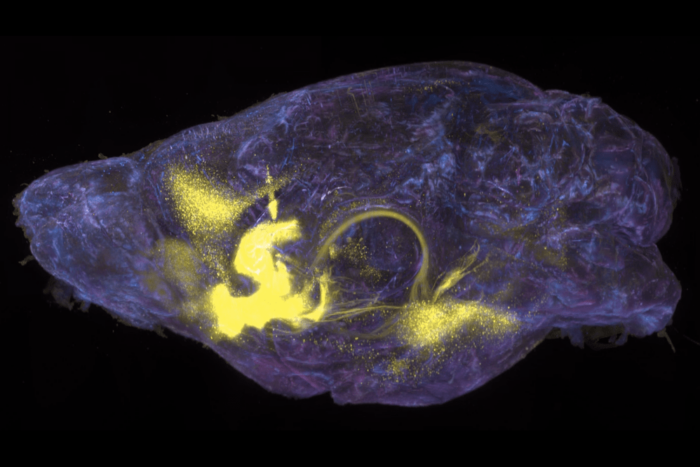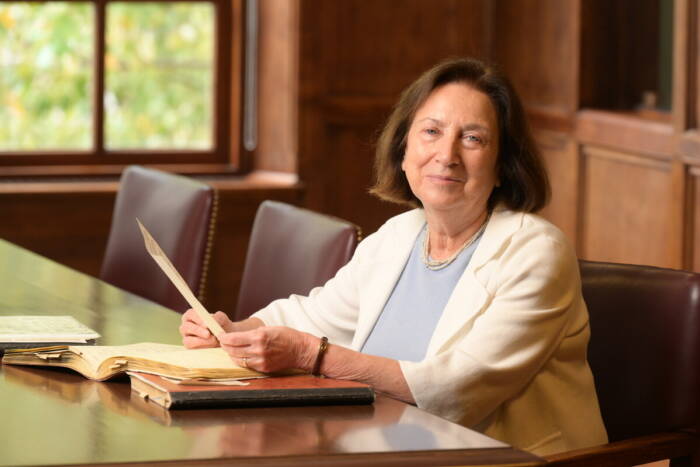The Rockefeller University designated a “Milestones in Microbiology” site by the American Society for Microbiology
The American Society for Microbiology (ASM) will name The Rockefeller University a “Milestones in Microbiology” site, recognizing the institution and its scientists for their significant contributions toward advancing the science of microbiology. The announcement will be made at a formal dedication ceremony on Wednesday, April 8, 2015, at noon at Rockefeller’s New York City campus.
The Rockefeller University, formerly known as The Rockefeller Institute for Medical Research and founded in 1901, was the first institute in the U.S. entirely devoted to using biomedical science to understand the underlying cause of disease. Its initial focus on infectious disease and its continued leadership in fields such as bacteriology, virology, parasitology, immunology, and genetics have led to numerous advances in the microbiological sciences. The ASM Milestones designation is made in recognition of the many outstanding achievements of Rockefeller scientists, and in particular for ground-breaking discoveries by Oswald T. Avery, Colin M. MacLeod, Maclyn McCarty, Peyton Rous, and Emil C. Gotschlich.
The dedication ceremony will feature remarks by Marc Tessier-Lavigne, Rockefeller University president, as well as James Darnell, Vincent Astor Professor Emeritus, and Gotschlich, R. Gwin Follis-Chevron Professor Emeritus, who will speak on the university’s role in early microbiology and on its history of meningitis research. A plaque commemorating the “Milestones in Microbiology” designation, to be installed in Rockefeller’s Collaborative Research Center, will be presented by Stanley Maloy, past president of the ASM.
“Rockefeller University has served as an intellectual hub for microbiology, supporting innovative research on microbes that has provided both fundamental insights into science and practical applications that have impacted the world,” says Maloy. “The steady stream of influential scientists who have passed through its laboratories have made important discoveries in every area of medical microbiology, from early work demonstrating that heredity is determined by DNA, the growth of mammalian cells in tissue culture, the nature of blood groups, insights into immunity, and the development of antibiotics and vaccines, through recent discoveries on viruses, bacteria, parasites, and host responses.”
“Microbiology was the cornerstone of Rockefeller’s mission at our founding, and it remains a vibrant field of study in our laboratories today,” says Tessier-Lavigne. “Today’s generation of Rockefeller microbiologists, immunologists, and cell biologists are building on their predecessors’ twelve decades of work, driving discoveries that will lead to new treatments and cures for infectious disease. We are enormously proud of Rockefeller’s legacy in this field, and on behalf of our scientific community I am greatly honored by this recognition from the ASM.”
Previously designated “Milestones in Microbiology” sites include the Waksman Laboratory at Rutgers University; Hopkins Marine Station in Monterey, California; the site of the University of Pennsylvania Laboratory of Hygiene; Scripps Institution of Oceanography; the Tulane University School of Public Health and Tropical Medicine; Cold Spring Harbor Laboratory; the Microbial Diversity Course at Marine Biological Laboratory, Woods Hole; Storrs Agricultural Experiment Station at the University of Connecticut; and the University of Wisconsin–Madison, Department of Bacteriology. For more information on these sites, visit www.asm.org/milestones-in-microbiology.
About The American Society for Microbiology
The American Society for Microbiology is the largest single life science society, composed of over 39,000 scientists and health professionals. ASM’s mission is to advance the microbiological sciences as a vehicle for understanding life processes and to apply and communicate this knowledge for the improvement of health and environmental and economic well-being worldwide. More information is available at www.asm.org.


